For my interactive ethnography, I asked 53 year-old Paul Leslie and 50 year-old Robin Levine to conduct a “card sort” to identify their preferences in health and knowledge of technology.
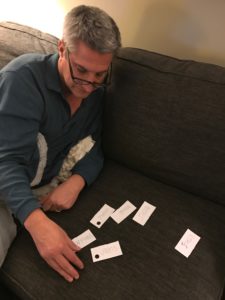
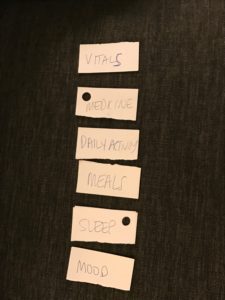
Based on these results, we are able to tell what kind of user Paul might be. He is someone who is not as concerned about his mood or sleep (which might explain his negative attitude at times) as he is about his vitals, medicine, and daily activity levels. An ideal product for Paul would have the capability of tracking crucial health metrics (such as heart rate, blood pressure, etc.), when he needs to take his medicine, and how many miles he’s walked (or other FitBit related data).
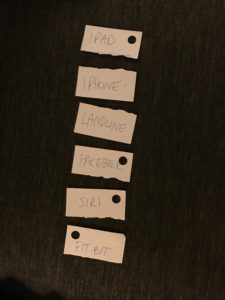
According to these results, we can assume that someone like Paul values a device that has a large, engagement-compatible screen with high functionality. Further, he isn’t quite ready to give up the feeling of being able to physically call someone to initiate contact (landline over Facebook). Lastly, he rarely uses Siri and does not own a FitBit.
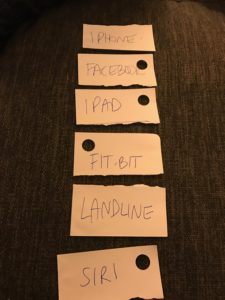
Robin is more willing to try new things, and naturally more technologically gifted, than Paul. Her results suggest that she may be willing to try a new product, and let go of archaic forms of technology in favor of more innovative ones. However, she does not feel the need to utilize Siri, or some other kind of voice-assistant, because she is perfectly capable of engaging with all the features of a smart device on her own.
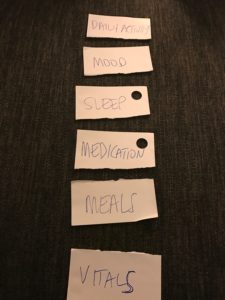
Robin fits the profile of an “active Arnold” since she is more concerned with how she seems to be “feeling” than how her body is technically functioning. She knows what she needs to do each day to put her best foot forward, and while she is indeed healthy overall, she cares less about technical health statistics and more about the natural processes of living. An ideal product for Robin would be able to track her fitness output, hours and quality of sleep, and general mood.

Lastly, here are Leo’s preferences for living a happy and healthy life! (Note: Leo’s input will not be included in our data, nor considered in the design of our finished product).